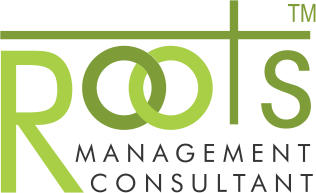The Social Accountability 8000 (SA8000) is the first global standard for corporate social responsibility. SA8000 is promoted as a voluntary, universal standard for companies interested in auditing and certifying labour practices in their facilities and those of their suppliers and vendors. It is designed for independent third party certification. SA 8000 is based on the principles of international human rights norms as described in International Labour Organisation conventions, the United Nations Convention on the Rights of the Child and the Universal Declaration of Human Rights. It measures the performance of companies in eight key areas: child labour, forced labour, health and safety, free association and collective bargaining, discrimination, disciplinary practices, working hours and compensation. SA8000 also provides for a social accountability management system to demonstrate ongoing conformance with the standard.
SA8000 Certification in Gujarat – By Roots Management
The SA8000 certification consultancy is provided by Roots Management Services, Ahmedabad, Gujarat, India, which helped organization to get certified through independent organizations, accredited by Social Accountability Accreditation Services (SAAS). A facility wishing to seek certification to SA8000:2014 must apply to a SAAS-accredited auditing firm, known as a Certification Body. The SA8000 Certificate is issued by Certifying body, which is accredited to provide certificate under the SA 8000:2014 standard. The SA 8000 certificate is issued for the period of 3 years after successful completion of pre–assessment and registration (Final) assessment. Surveillance audits are conducted by the Certifying body within the period of 3 years at the interval of 6 Months, 9 Months or 12 Months depending upon the nature and size of the Organization. The SA8000 certified workplaces are required to make public their SA8000 certification and can display their certificate in a store or a factory, in company advertising, and on company stationery.
Steps for SA8000 Consultancy by Roots Management
Bellow are the steps that Roots management follows while SA 8000 :2014 Consultancy, Social Accountability certification for organization in India. With these steps of SA8000 consultancy, overall system implementation and certification process can be fast and effective.
- Micro level survey of the existing system
- Conduct awareness program to understand SA 8000 system (top + middle + bottom level).
- Form a steering committee and task force for each level of committee.
- Prepare the committees and policies related to Labour standards, health and safety.
- Prepare documents of social accountability SA 8000 system for SA 8000 certification.
- Implementation & train all personnel in the use of procedures & formats.
- Self assessment of the SA 8000 system
- Assess the system through first internal audit.
- Take corrective actions for non-conformities.
- Apply to certifying body SAAS
- Complete the SA8000 audit by certifying body
- Take corrective actions on the non conformities issued if any
- Get certified for SA 8000.
SA8000 Certification Requirements
The standard is composed of following 9 SA8000-2014 requirements which must be follow by any organization while implementing SA8000 system in their organizations.
- Child Labour is not permitted
- Forced labour is not permitted
- Health and safety have to be assured
- Discrimination is not permitted
- Disciplinary Practices are not allowed
- Freedom of Association and Right to Collective Bargaining have to be guaranteed
- Working Hours shall not exceed 48 hours a week, with a maximum of 12 hours overtime
- Remuneration shall be sufficient
- Management Systems shall guarantee that the requirements are effectively satisfied
Benefits of SA 8000 System Certification
Following are the key Benefits of SA 8000 System that organization can achieved with the implemention in their work place.
- Drive improvements in ethical and responsible business practices
- Increase efficiency
- Save time and resources
- Improve supplier engagement
- Boost productivity
- Reduce reputational risk
- Gain competitive advantage
- Help drive collaboration and reduce duplication.

